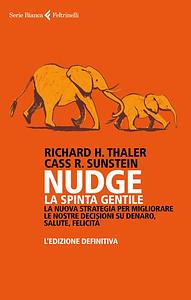Take a photo of a barcode or cover
I liked it whenever they mentioned the difference between how people would behave if they were all "econs" and how they tend to behave because people are all "humans".
Valuable content on the role of paternalistic nudges to ensure safety and provide guidance to society whilst maintaining freedom of liberty.
The book made interesting points but dragged them out, and then repeated them, managing to fill over 200 pages.
It was hardly groundbreaking and could have been written as a long essay or (it’s final) chapter at most
The book made interesting points but dragged them out, and then repeated them, managing to fill over 200 pages.
It was hardly groundbreaking and could have been written as a long essay or (it’s final) chapter at most
informative
reflective
fast-paced
informative
If you have read other books covering behavioral psychology you will find the first half of the book a little boring as you would have likely come across most of the research they mention elsewhere. The second half details the author's ideas. The book is ok but others in this area have been better and more engaging.
Prior to reading Nudge, I would not readily identify myself as either a libertarian or as a paternalist. A few chapters in, however, I found myself converted. Richard Thaler and Cass Sunstein’s logic is straight-forward and easy to follow. The authors do a great job of introducing key concepts (such as “libertarian paternalism” and “choice architecture”) early on, and then weaving them into every new topic...
To read my full review, check out my blog post blog post.
To read my full review, check out my blog post blog post.
This book honestly made me rethink how I make a decision. It is a great introduction to behavioral economics without getting too technical. The perspectives on nudging folks to make healthier and safer decisions is great for anyone in business, public health, or healthcare services.
I wish I could give Nudge 3.5 stars. Some sections were more enthralling than others - I found the later sections that focused on healthcare, marriage, and education especially interesting. I would give those sections a 4, but earlier parts of the book did drag and get bogged down by almost too make examples. Choice architecture is a fascinating concept, but perhaps not enough to carry through several chapters.
informative
medium-paced





